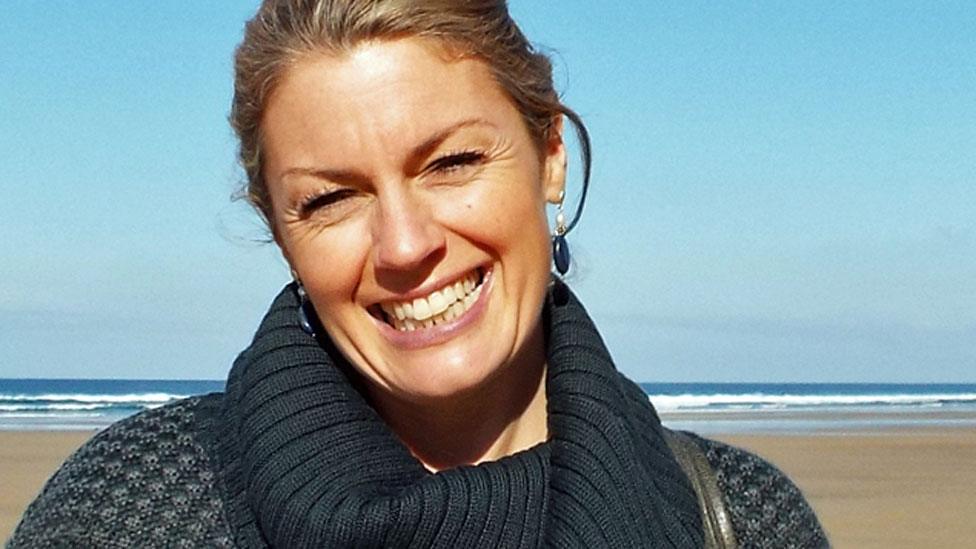Covid-19: Essex student helps 600 refugees out of 'period poverty'
- Published
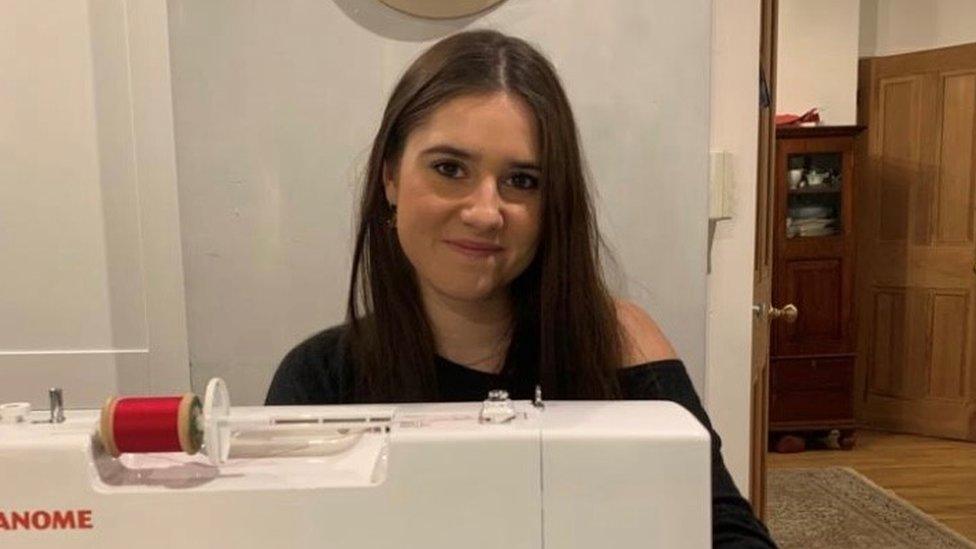
Ella Lambert had never sewn before but borrowed a friend's machine to learn how to make sanitary pads made from cloth
A student whose "terrible period pains" inspired her to start a reusable sanitary pad project has helped 600 refugees get out of "period poverty".
Ella Lambert, 20, from Chelmsford, Essex, started The Pachamama Project, external during the first coronavirus lockdown.
She said she wanted to help women who were unable to buy period products.
Nearly 2,500 pads sewn by 150 volunteers have been sent to camps in Greece and Lebanon.
Women are given four pads each, which are washable and can be reused for about five years, she said.
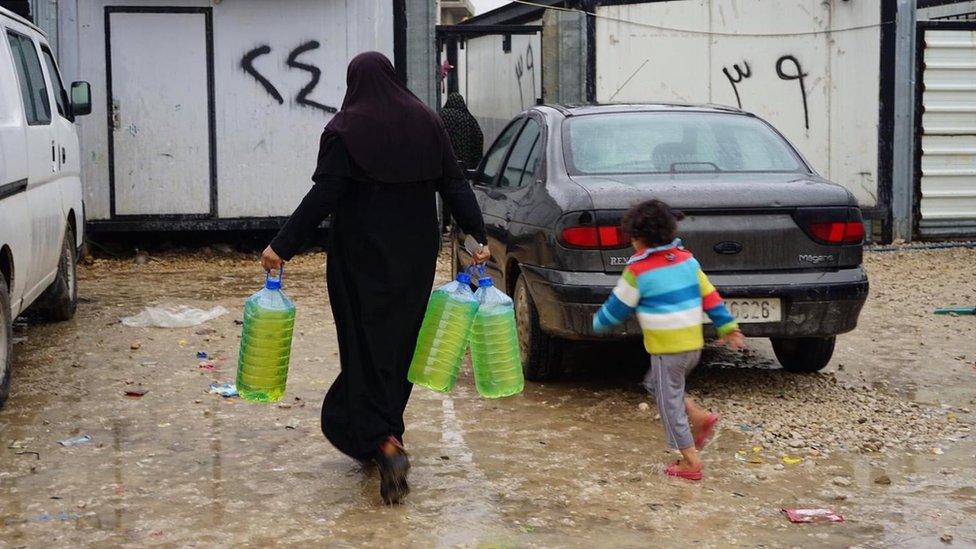
The pads are distributed to women in refugee camps
Ms Lambert said: "In March I had terrible period pain, I was being sick, it was awful, and it made me think, I know I'm not the only person going through this.
"The people I want to help, in these camps, they're experiencing period pain and having to use random tissue paper, cardboard, socks, scraps of material and even leaves - whatever they can get hold of."
The University of Bristol languages student set up her not-for-profit group in March and launched her sanitary product - Pacha Pads - in August, with the help of charities and groups in the two countries to distribute them.
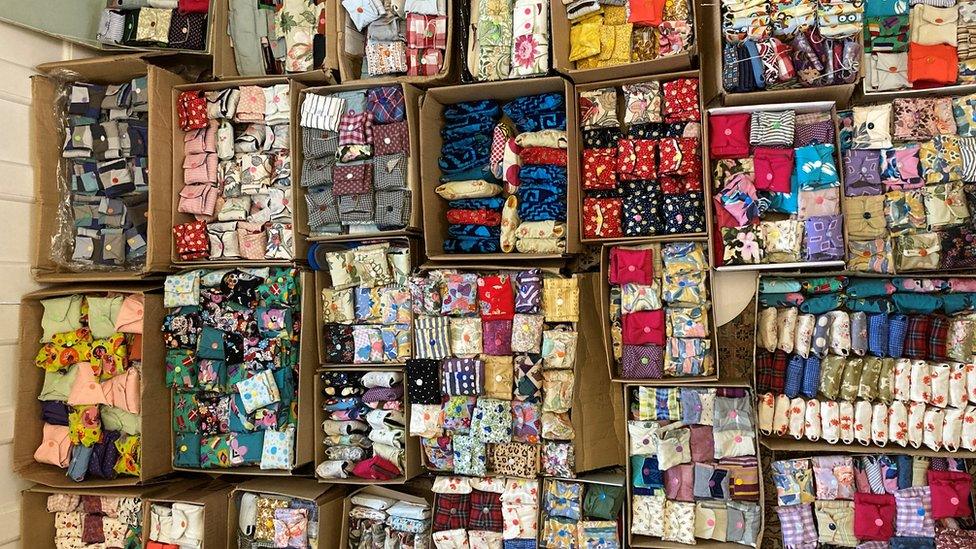
Thousands of pads have been made by hundreds of volunteers since August
It started when she put appeals for material on community groups, she said.
Volunteers from all over the UK came forward to make the products after she developed a pattern, created a guide and explained how to source material for free.
The products are then sent back to her to be posted abroad, after quality checks.
Some of the sewers came from groups formed to make scrubs for NHS workers during the first lockdown, and who still wanted to be useful, she said.
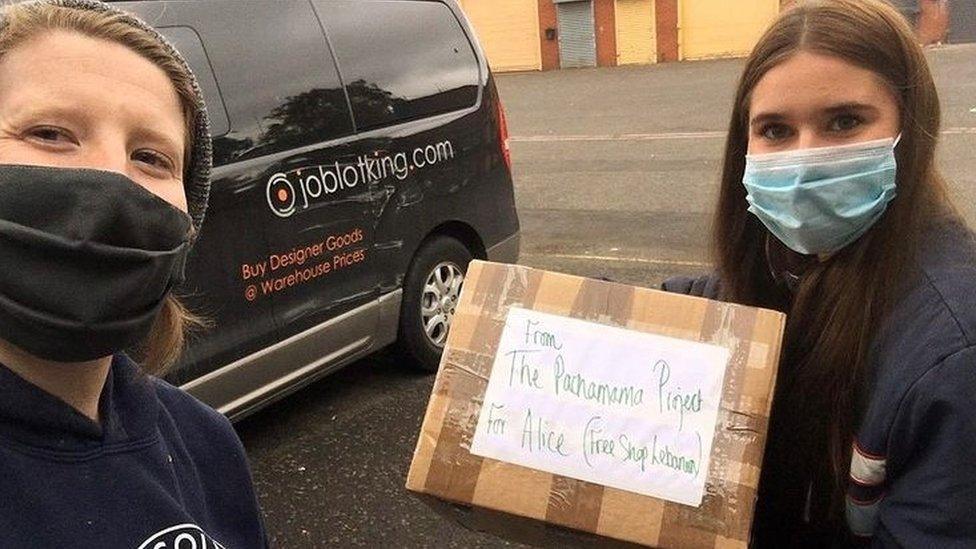
Alice Corrigan, from The Free Shop of Lebanon, said the project helped with the "fight against period poverty in Lebanon"
Alice Corrigan, founder of The Free Shop Lebanon, which hands out the products for free in its shop, said: "Sustainable menstrual products are very new to many Lebanese and in particular Syrian women."
She added it is not common for them to talk about menstrual activity, so it was important they could be helped to understand its importance and accept it as part of their routine.
Katy Chadwick, technical adviser at the charity ActionAid UK, external, said: "For too many women and girls and people who menstruate a lack of access to products impacts on their ability to move freely and to access education and other opportunities.
"It's encouraging to see new initiatives to support the most marginalised women and girls access sustainable products."
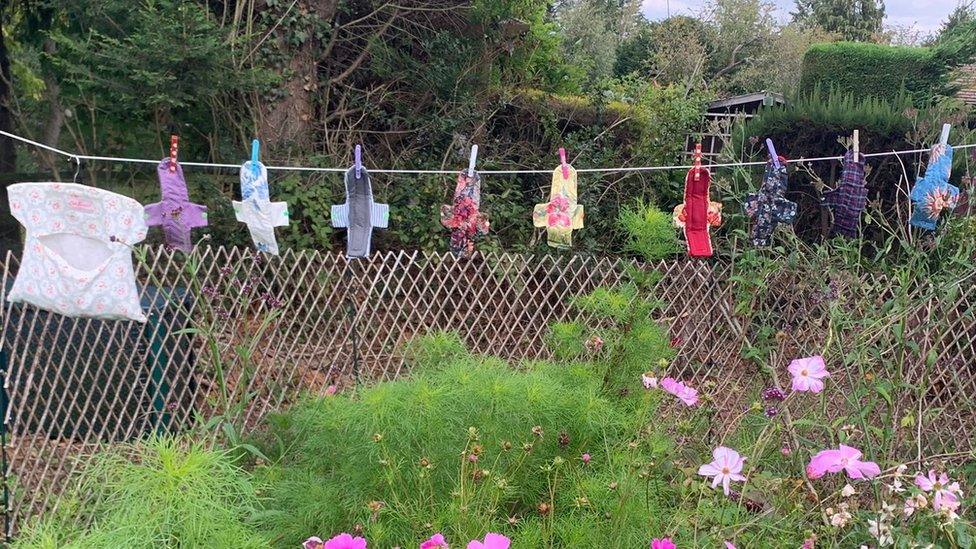
All the sanitary pads are washable so they can be reused for up to about five years

Find BBC News: East of England on Facebook, external, Instagram, external and Twitter, external. If you have a story suggestion email eastofenglandnews@bbc.co.uk, external
- Published4 October 2020
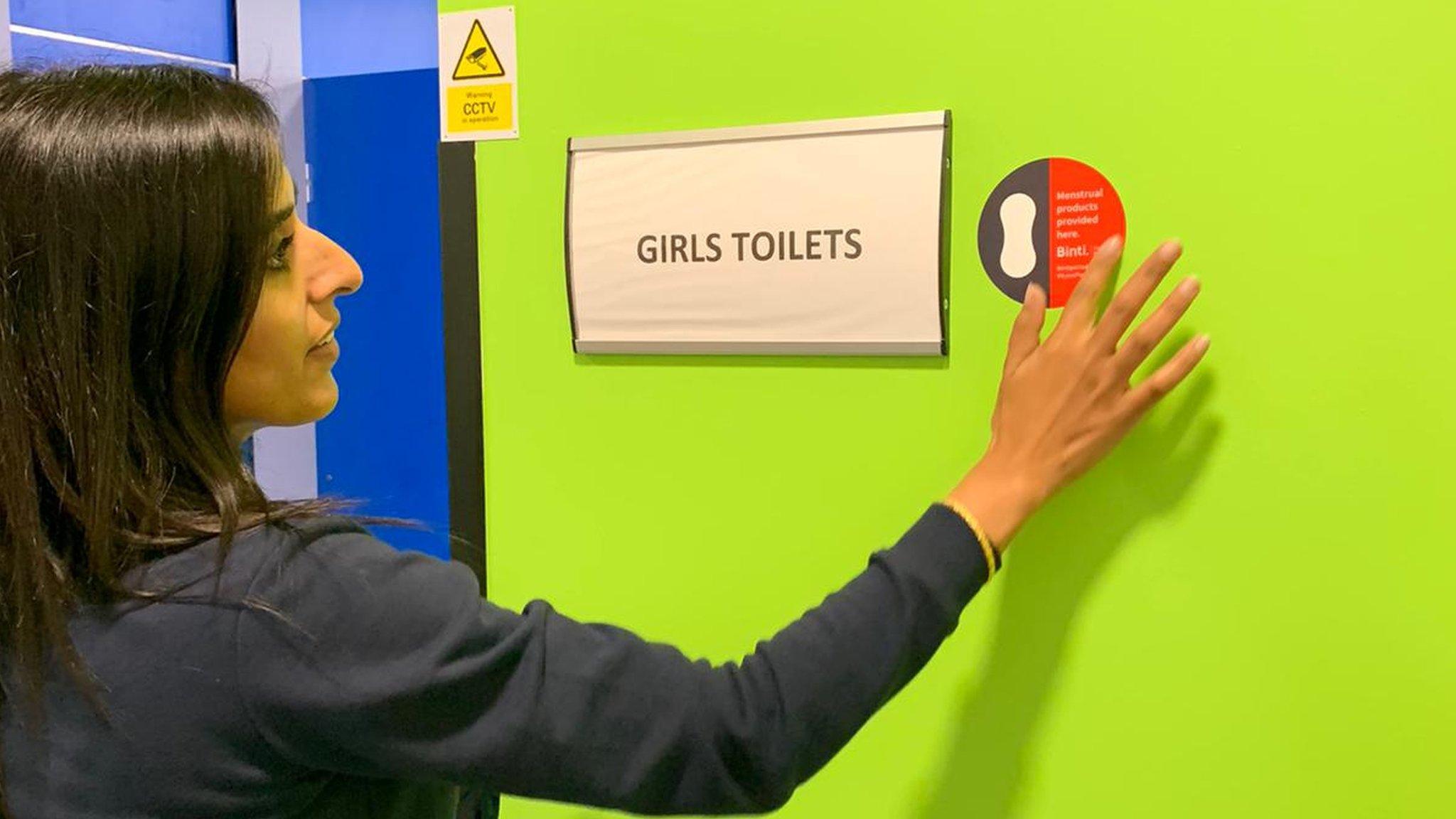
- Published1 October 2019
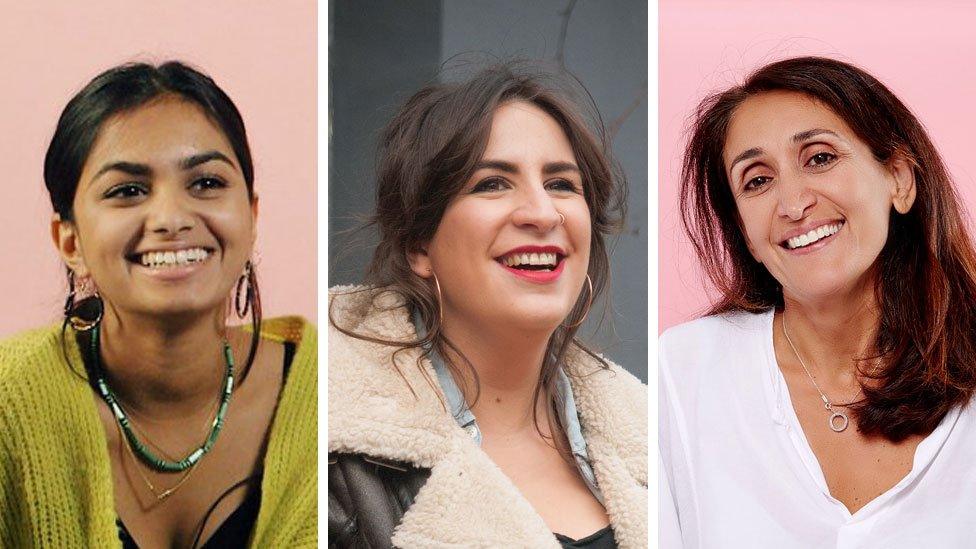
- Published11 May 2019
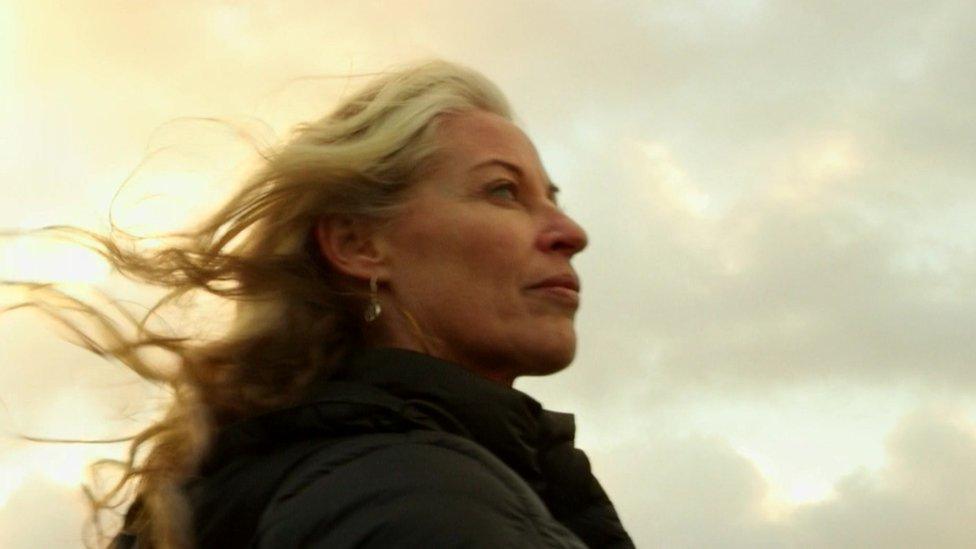
- Published2 July 2017
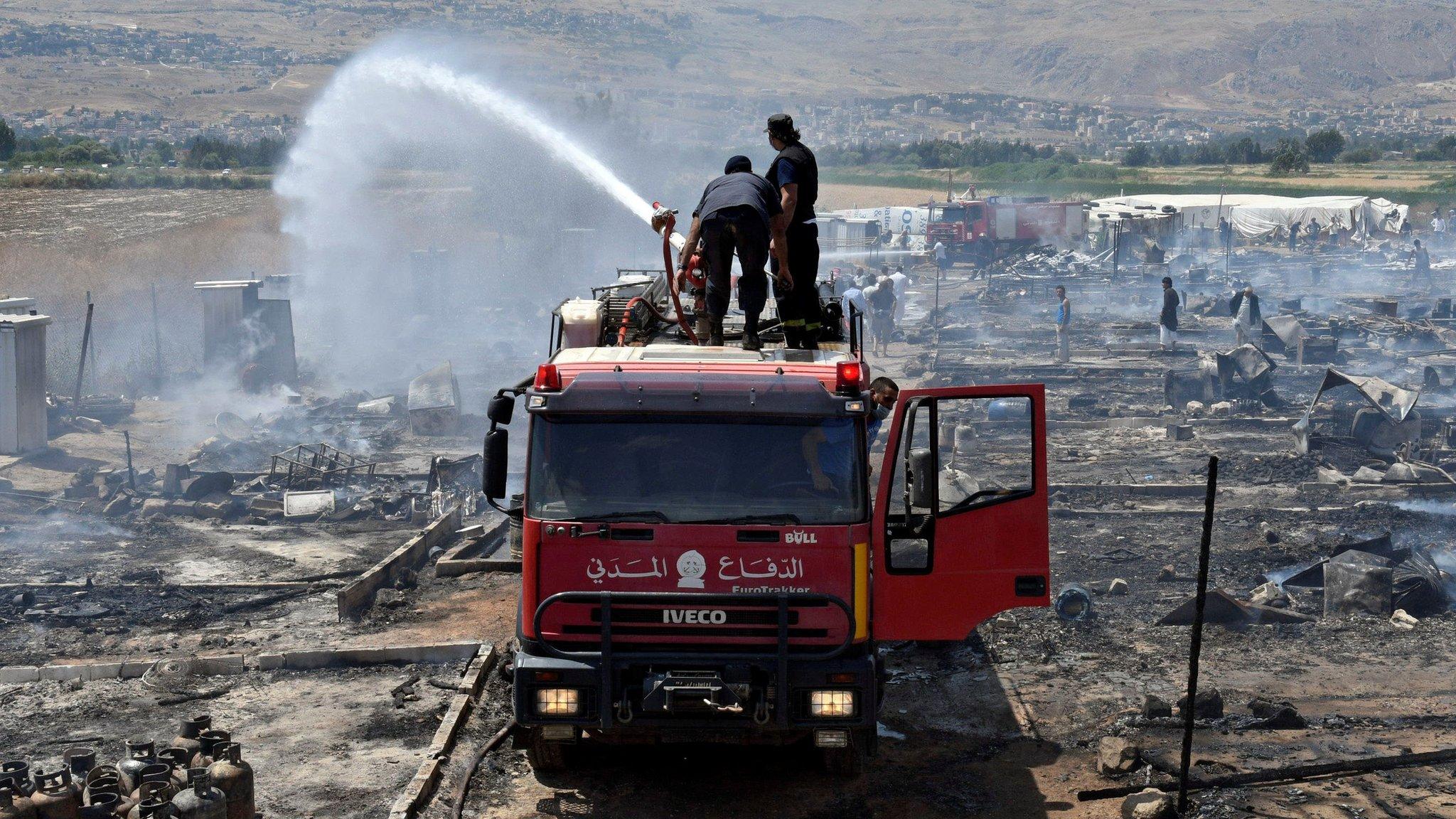
- Published3 December 2015
